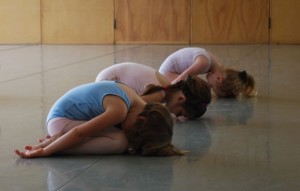 SAN DIEGO – A judge in a California court ruled this week that yoga is not an inherently religious exercise, and is thus constitutional to practice in public schools.
SAN DIEGO – A judge in a California court ruled this week that yoga is not an inherently religious exercise, and is thus constitutional to practice in public schools.
As previously reported, the Encinitas Unified School District (EUSD) in southwestern California recently started teaching yoga classes to its students after receiving a $533,000 grant from the yoga-promoting Jois Foundation. According to its website, the foundation aims to use “the techniques of yoga, meditation and proper nutrition [in public schools] to create a positive lifestyle change.”
However, Stephen and Jennifer Sedlock, parents of two EUSD students, saw the yoga program as an unconstitutional establishment of religion, and—with backing from the National Center for Law and Policy (NCLP)—filed a February lawsuit against the school district. The NLCP is a non-profit legal defense organization committed to protecting and promoting religious freedoms.
Even before the lawsuit was filed against the school district, NCLP had raised serious concerns over the school’s yoga policy, saying it “unconstitutionally establishes the Hindu religion as the preferred and favored religion in the district.” The organization was especially concerned by certain wall posters and stretch routines that featured Eastern religion themes.
“The U.S. Constitution’s First Amendment also states that government shall not prohibit the ‘free exercise’ of religion,” NCLP explained in a detailed statement. “The EUSD yoga program is not religiously neutral and undermines the religious free exercise rights of and discriminates against Christian, Jewish, Muslim, Mormon and other children and parents by offering only participation in religious activities that violate their religious beliefs and practices.”
However, San Diego Superior Court Judge John Meyer firmly sided with EUSD officials in his ruling this week, saying the yoga classes do not constitute an establishment of Eastern religions, but are instead simple promotions of health, strength and flexibility. School district officials were also quick to point out that the school district has taken steps to make the yoga routines more kid-friendly and neutral, with fewer seemingly religious overtones.
In his two hour-long explanation of the decision, Judge Meyer remarked that the concerned parents had most likely based some of their opinions on unreliable Internet sources.
“It’s almost like a trial by Wikipedia, which isn’t what this court does,” he stated.
According to Reuters, Judge Meyer admitted that yoga “at its roots is religious,” but maintained that the type of yoga taught in the California school district is “a distinctly American cultural phenomenon.”
“A reasonable student would not objectively perceive that Encinitas School District yoga does advance or promote religion,” he further explained.
Soon after the ruling, NCLP published a two-page reaction to Judge Meyer’s verdict. Dean Broyles, the attorney who represented the Sedlocks in the court case, was clearly disappointed by the ruling, and said in the release that it was “the clearest case of the state trampling on the religious freedom rights of citizens that I have personally witnessed in my 18 years of practice as a constitutional attorney.”
Broyles was especially concerned by the Jois Foundation’s role in the situation.
“EUSD’s ‘model’ yoga program sets a very dangerous precedent,” he warned. “No matter how starved our school districts are for money, we must not allow our public servants to ‘sell’ our precious children to the highest bidder to be used as religious ‘guinea pigs’ to fulfill the self-serving marketing purposes of a religiously motivated organization. Religious freedom is not for sale. EUSD’s improperly cozy relationship with the Jois Foundation has entangled the district in an unnecessary and avoidable religious controversy and has caused considerable damage and negative fallout in the community.”
Become a Christian News Network Supporter...


